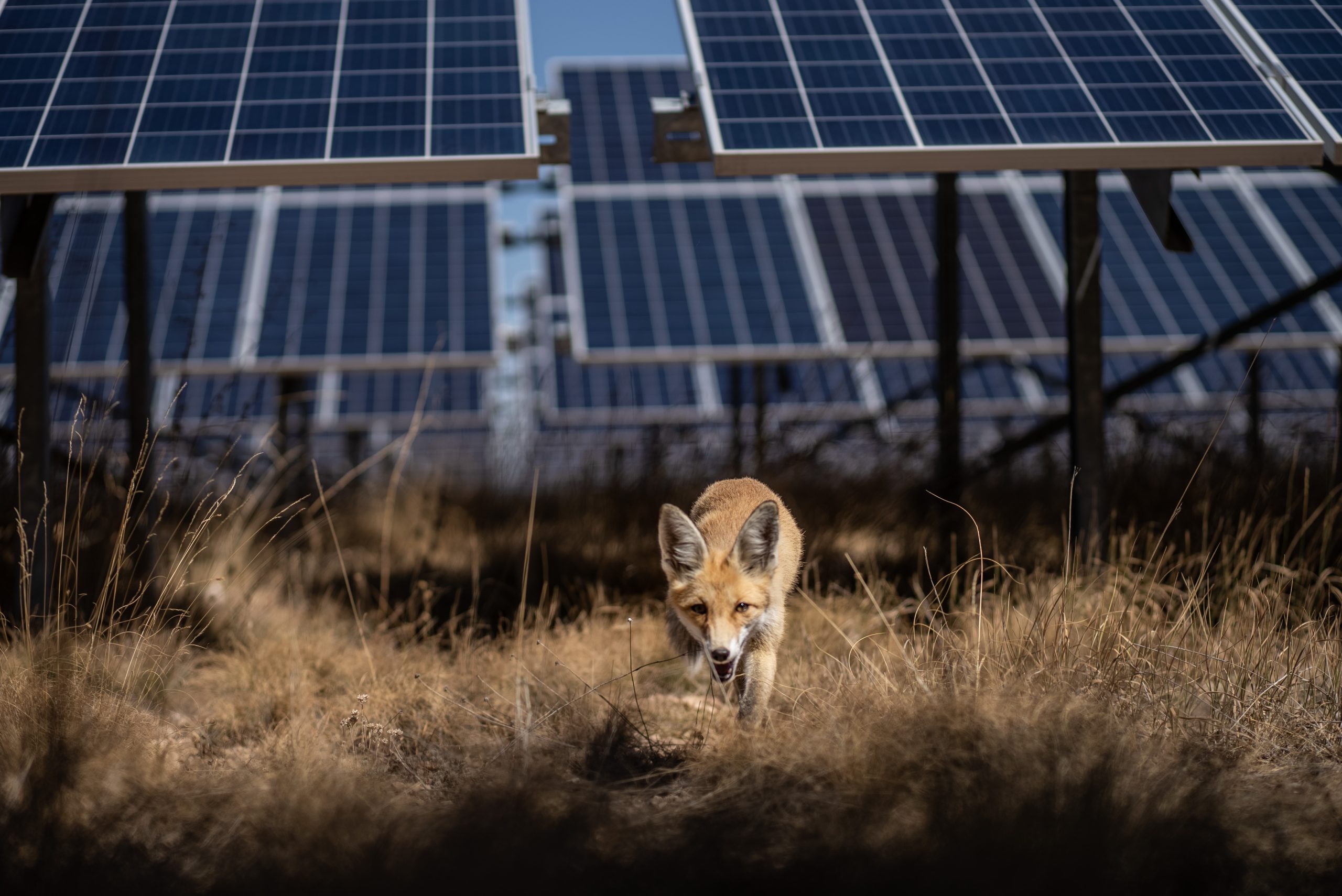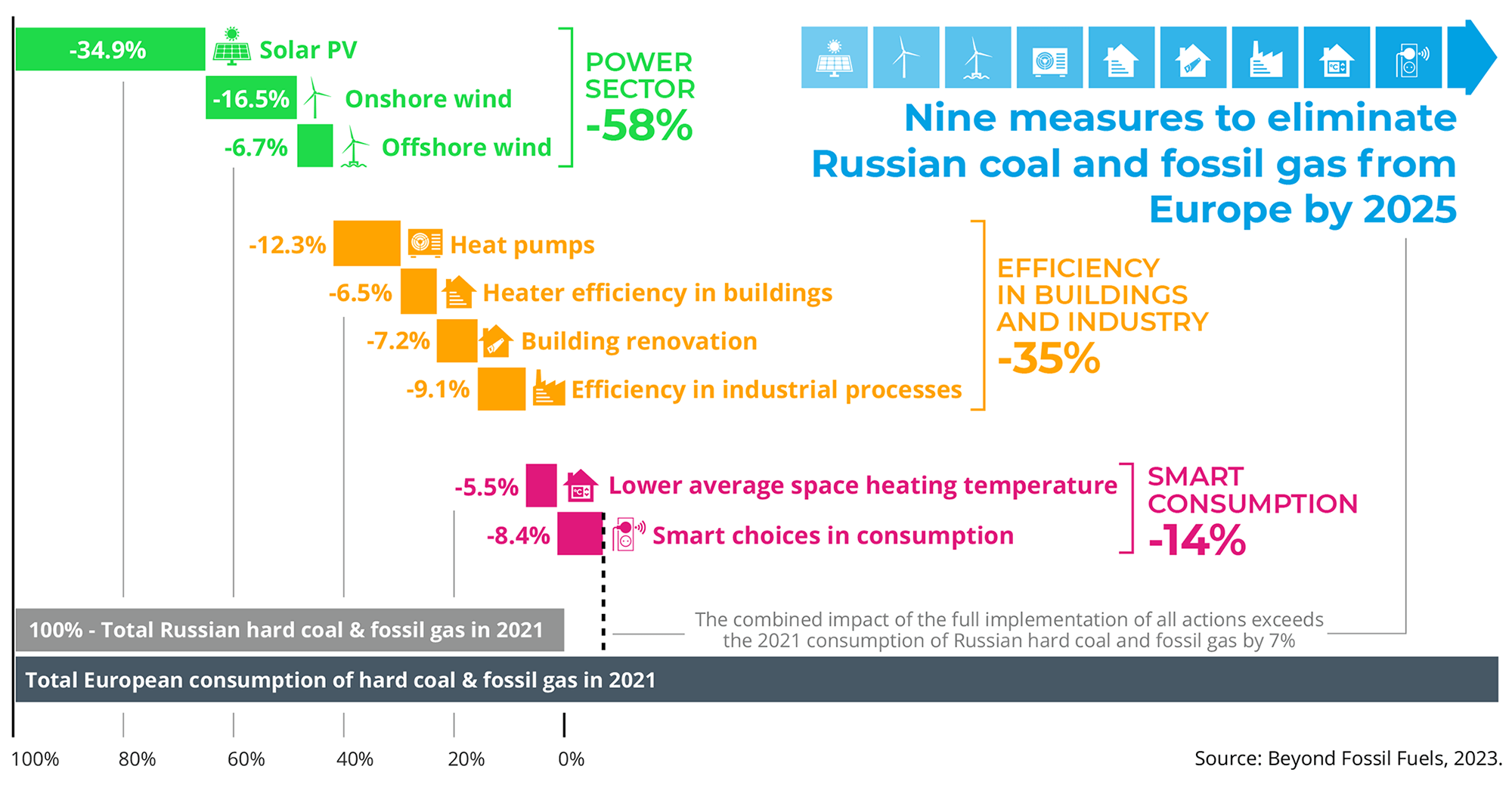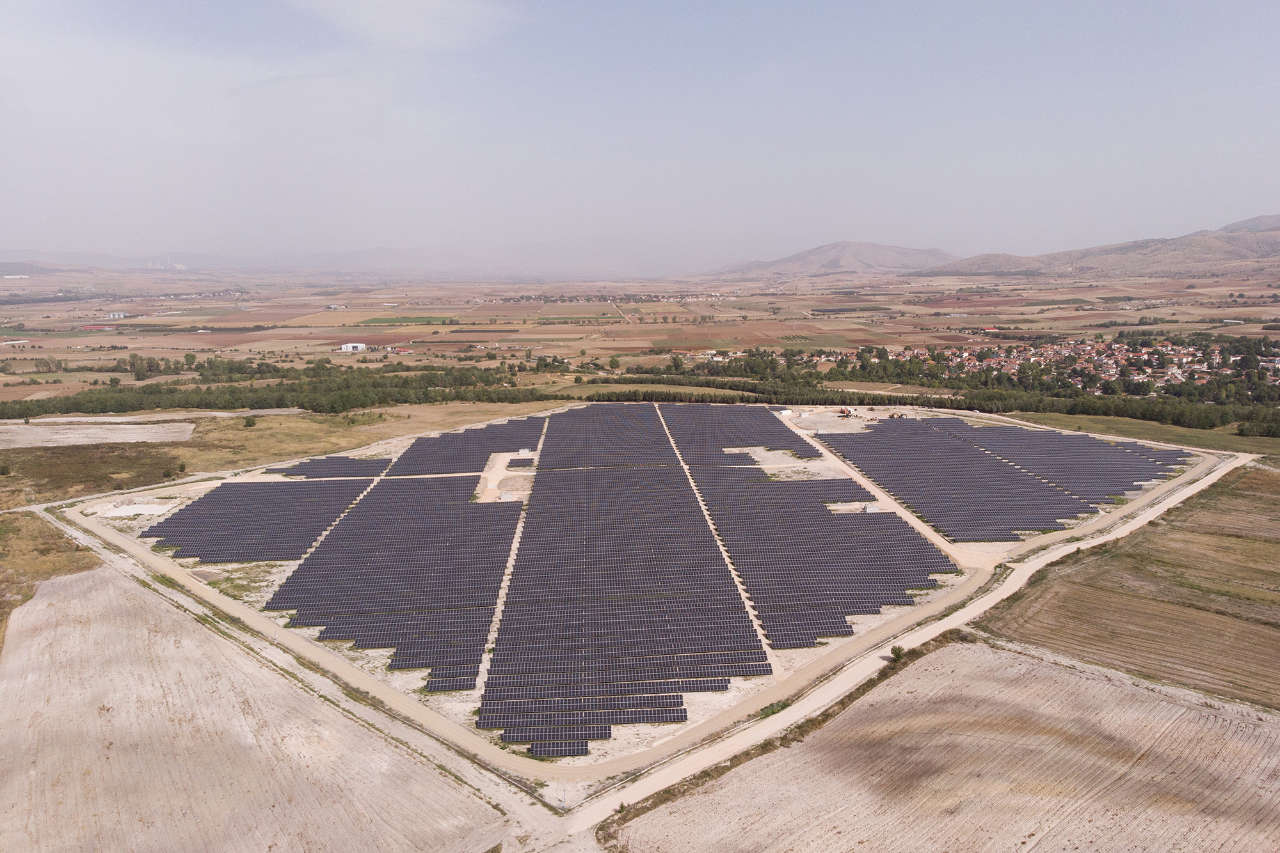19 June 2023
Freeing Europe from fossil fuels
Since the start of the 2020’s, Europeans have experienced crisis after crisis after crisis. We’ve been made vulnerable by unaffordable jumps in the cost of living, poorer through energy instability, and we’re more at risk than ever from extreme weather conditions driven by severe climate change.
These compounding crises are all rooted in reliance on fossil fuels, and while there is broad agreement that renewable power and energy efficiency are our best tools to address them, this necessary, transformative shift in our power systems is still not being treated with the urgency and resoluteness required considering it addresses all these crises at once.

Prior to the Russian war on Ukraine, countries across Europe (in this case the European continent excluding Russia and Belarus) had made big strides to end dependence on coal, with 23 nations announcing coal phase-outs; of these, 17 have either already gone coal-free or have committed to do so by 2030. Not one rolled back its commitment during the 2021 energy crisis, and the last four months of 2022 even saw a decline in coal-fired power generation. Many have in fact considerably stepped up their renewable energy ambitions in response to what is clearly yet another crisis tied intimately to fossil fuel use.
However, to truly restore energy security, to cut bills, and to stay within the +1.5 degree Celsius limit agreed under the 2015 Paris Climate Agreement, we need to go much faster and much further – phasing out fossil gas and coal to achieve a fully renewable-based powered Europe by 2035.

Beyond Fossil Fuels’ first report, “Freedom from Fossil Fuels” (2023), shows what European countries need to be doing to get on track, namely: removing 1/3 of the coal and gas used for heat and power from Europe’s energy demand in the next couple years through a mix of measures covering a big scale up of renewables in the power sector, efficiency in buildings and industry, and smart consumption.
Roadmap for a renewable revolution
Reducing fossil gas and coal demand by at least a 1/3 by 2025 is both achievable and necessary to address bills, energy security, and climate change. A total of nine measures which, if implemented in the coming few years, will remove 44% of coal (75 Mt in 2021) and 35% of fossil gas demand (199 bcm in 2021) within Europe’s electricity and heating sectors.
The European solar, wind and heat pump industries have identified that a significant amount of new capacity could be deployed across the continent in four years. Power sector measures outlined above are only a moderate increase of the industries’ current forecasts.

Considering this is equivalent to the coal and gas that Europe was importing from Russia before its war on Ukraine, cutting this level of fossil fuels out with a massive expansion of solar and wind, heat pumps, efficiency measures in the industry, building renovations, and smart choices in terms of energy consumption is not just a win for household bills and climate change, it’s also a huge step towards energy security and peace.
Together with targeted, temporary measures to reduce electricity and heat demand and balance supply to manage the next two winters, these measures will reduce Europe’s gas demand to a level that negates the need for more gas import infrastructure like gas pipelines and LNG terminals and end all Russian coal and gas imports for good.
Doing the heavy lifting
The encouraging news is that accelerating the deployment of solar, wind and heat pumps alone would substitute a large share of Europe’s pre-war fossil gas and coal imports from Russia, avoiding an expensive “dash-for-gas” globally, and locking higher energy prices for more vulnerable strata of society and more unsustainable fossil fuel infrastructure in Europe and abroad.
“Reducing fossil gas and coal demand by at least a 1/3 by 2025 is both achievable and necessary to address bills, energy security, and climate change.”
As illustrated in the “Freedom from Fossil Fuels” (2023) report, European countries and businesses would need to add 481 gigawatts (GW) of solar, 102 GW of new wind capacities and nearly 29 million heat pumps from 2022 until the end of 2025. As a daily average, this translates to the solarization of 20,000 homes and 30 parking lots; building seven solar farms and 14 wind turbines; and installing 19,500 heat pumps across the continent. Building 14 wind turbines a day is next to nothing when 45,000 new cars are manufactured in Europe every day and more than 12,000 gas boilers are installed in homes.
The skyrocketing growth of the solar and heat pump sector growth in 2022 speaks to the achievability of this ambitious plan. Although a coal comeback was widely expected over winter 2022, it was renewables that rose to meet demand. Where other energy sources like nuclear and hydropower failed, solar and wind picked up the pieces. In 2022, heat pump sales saw record-breaking growth nearing 40% in Europe while solar celebrated its best year yet, growing 47%.

That’s not to say there is not a lot of work to be done. While initially, wind scaled quickly, national start-stop policies stifled its potential. European governments, municipalities, financial institutions, utilities, and businesses must work together to fix existing barriers and provide the financial assistance needed to support the speed and magnitude of the transition. This requires a scaled-up industrial plan that addresses supply chains, the workforce and embraces social, environmental, and public participation standards.
We have seen impressive renewable energy developments in Greece, Poland, and many countries across Europe, but making the progress we need now hinges on decision-makers stepping up and investing in a fair and just transition for all.
Making smart decisions
The acceleration of the fossil fuel phase-out in Europe will only hit the level necessary to address the challenges ahead if governments, financial institutions, utilities and business leaders, as well as local governments, recognize that there is no security, no prosperity, and no real respite from crises to be had by switching fossil fuel imports from one country to another. Only rapidly cutting coal and gas demand will.
Several EU Member States still cling to unnecessary gas infrastructure plans, which will inevitably reach obsolescence in the coming years as the Continent continues to decarbonize. This will cost companies billions in stranded assets – with much of the cost burden ending up on taxpayers and consumers. Just as the closures of all existing coal plants and mines will happen before 2030, we must seal the same fate for all gas plants before 2035.
Investment in solar, wind, and heat pumps would already get us a long way to break our dependence on fossil fuels but more will be needed across all sectors to cut energy and fossil fuel use, and to help vulnerable households, communities and local businesses with the transition. While the investment feels big, it would buy an end to the destructive, exploitative status quo, stable, affordable electricity bills, far more secure energy supplies, and real action on climate change all at once.

As think tank Ember announced in April 2023, “the end of fossil age has begun”. That became evident when the energy crisis did not even attempt to bring coal back. Instead, the crisis has blown wind into the sails of the energy transition and proved just how necessary and ultimately unavoidable a fossil-free, renewables-powered Europe is.
There is also a strong consensus among Europeans on the need for renewable energy with 87% agreeing “the EU should invest massively in renewable energies”. Many took matters into their own hands during the energy crisis, running to install solar panels and more efficient heat pumps to bring down their energy bills. This had a ripple effect on governments and businesses that witnessed an unprecedented enthusiasm for clean, renewable solutions.
“There is no security, no prosperity, and no real respite from crises to be had by switching fossil fuel imports from one country to another.”
Exponential growth trends in solar and heat pump deployment, swift decision-making by governments, and the energy-saving potential demonstrated by industry showed just what Europe is capable of… and laid the foundations of the needed scale-up. In just a few years, Europe can replace every joule of Russian fossil gas and coal it was relying on by committing to accelerated deployment of solar and wind, by determinedly looking for real energy savings in industry and building modernization, and by encouraging smarter use of energy across the board.
Now is the time to look beyond short-term fixes, and implement robust, permanent transition plans across Europe to insulate, to electrify, and to repower our societies with truly clean and renewable solutions. Every politician, business, financial institution, and energy company has a responsibility to put smart and popular plans in place to rapidly end fossil fuel use, and build a fair, more electrified, energy efficient, circular, sustainable, renewables-based European economy.
Europeans overwhelmingly want this renewable transition, and given it addresses our critical challenges of cost of living, peace, energy security, and necessary climate action, we have every reason to vigorously pursue it.
By Cyrille Cormier, Campaign Strategist, Beyond Fossil Fuels
